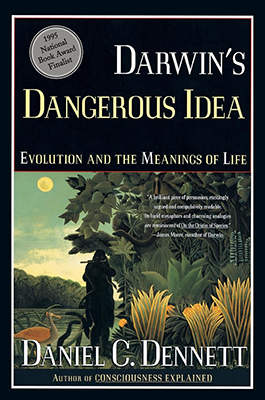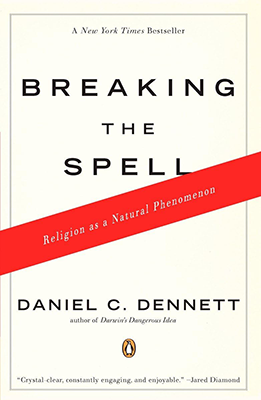
Daniel Dennett
Daniel Dennett, born on March 28, 1942, in Boston, Massachusetts, is an American philosopher, writer, and cognitive scientist known for his work in the philosophy of mind, philosophy of science, and evolutionary biology. Here’s an overview of his biography:
Education:
Dennett earned his Bachelor of Arts in philosophy from Harvard University in 1963. He continued his studies at the University of Oxford as a Rhodes Scholar, where he received his Doctor of Philosophy degree in philosophy in 1965.
Career:
Dennett’s academic career has been primarily focused on exploring the nature of consciousness, cognition, and the mind from a philosophical and scientific perspective. He has held teaching positions at various institutions, including the University of California, Irvine, and Tufts University, where he is currently a professor emeritus.
Dennett’s early work challenged traditional dualistic views of the mind and proposed a materialist, naturalistic account of consciousness rooted in evolutionary biology and neuroscience. His book “Content and Consciousness” (1969) is considered a seminal work in the philosophy of mind.
In subsequent works, such as “Brainstorms” (1978) and “The Intentional Stance” (1987), Dennett further developed his theory of consciousness, proposing the idea of the “intentional stance” as a way of understanding the behavior of complex systems, including humans and other animals.
Dennett’s most famous work, “Consciousness Explained” (1991), offers a comprehensive theory of consciousness grounded in evolutionary biology, neuroscience, and computer science. In this ambitious book, he argues that consciousness is an emergent property of the brain, resulting from the complex interactions of neural processes.
In addition to his contributions to the philosophy of mind, Dennett has written extensively on topics such as evolution, religion, and free will. His book “Darwin’s Dangerous Idea” (1995) explores the implications of evolutionary theory for our understanding of biology, culture, and the human mind.
Dennett is also known for his critiques of religion and belief in the supernatural. He has argued that religious beliefs are the result of natural evolutionary processes and has advocated for a naturalistic, scientific approach to understanding morality, meaning, and purpose in life.
Throughout his career, Dennett has been a prominent advocate for the importance of reason, skepticism, and scientific inquiry in addressing philosophical questions and understanding the nature of reality. He continues to be an influential figure in contemporary philosophy and cognitive science, shaping debates and inspiring new generations of thinkers.


